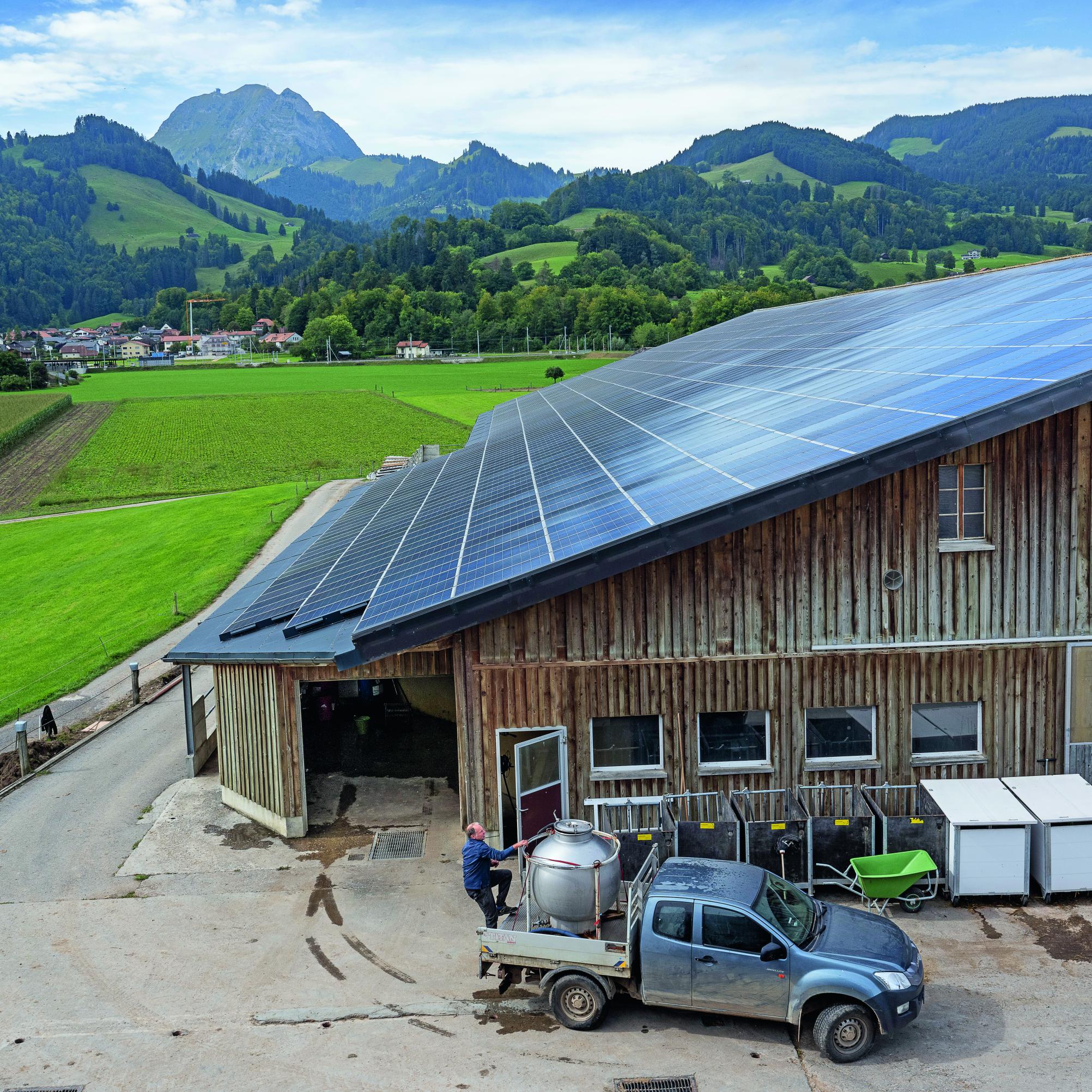Federal Department of Economic Affairs, Education and Research EAER

This farm in Epagny in the canton of Fribourg could also benefit from reduced red tape in future.
The EAER defines framework conditions for the economy and the labour market. It sets the rules that apply in the private sector and in agriculture, and represents the interests of the Swiss economy and the scientific community abroad. It is responsible for organising vocational and professional education and training and promotes research. The EAER also has the task of making sure that the country is supplied with essential goods.
Guy Parmelin
Head of the EAER.
Member of the Federal Council since 2016.
Many can benefit from less red tape, whether in terms of trade, the broader economy or in agriculture.
Priorities of the EAER in 2025
Switzerland is highly integrated into the global economy. Free trade agreements are of key importance to Switzerland in securing access to foreign markets and boosting competitiveness. Trade is already simplified thanks to an existing free trade network with 43 partners. The agreement with China, which has been in place since 2014, is currently being optimised and broadened. And the agreement with India, concluded in March 2024 after 16 years of negotiations, marks a significant milestone in Switzerland’s trade policy.
But the aim is not only to make it easier to trade, but also to simplify life for farmers, for example, by reducing the administrative burden. The Federal Council’s goal is to ensure that the agriculture sector is productive and that the country has a stable food supply in line with the principles of sustainability. To this end, the EAER is making sure the conditions are in place to strengthen value creation across the entire agricultural and food industry.
Every four years, the Federal Council formulates its policy to promote education, research and innovation. The 2025-28 dispatch is aimed at consolidation following several periods of above-average growth in expenditure. Within the scope of their responsibilities, the federal government and the cantons work together to ensure the best possible quality and permeability of the Swiss education system.
Expenses 2023 (CHF)
12,66bn
Staff (FTEs) 2023
2,255
Organisation chart EAER
General Secretariat GS-EAER
Secretary General: Nathalie Goumaz
www.wbf.admin.ch
State Secretariat for Economic Affairs SECO
State Secretary: Helene Budliger-Artieda
www.seco.admin.ch
State Secretariat for Education, Research and
Innovation SERI
State Secretary:
Martina Hirayama
www.seri.admin.ch
Federal Office for Agriculture FOAG
Director: Christian
Hofer
www.foag.admin.ch
Federal Office for National Economic Supply FONES
Delegate: Roland Pfister
www.fones.admin.ch
Federal Office for Housing FOH
Director: Martin
Tschirren
www.bwo.admin.ch
Federal Office for Civilian Service CIVI
Director: Christoph
Hartmann
www.zivi.admin.ch
Autonomous organisations
Office of the Price Supervisor
Price Supervisor:
Stefan Meierhans
www.preisueberwacher.admin.ch
Competition Commission COMCO
Director: Patrik
Ducrey
www.weko.admin.ch
Board of the Federal Institutes of Technology ETH
President of the ETH
Board: Michael O. Hengartner
www.ethrat.ch
Swiss Federal University for Vocational Education and
Training SFIVET
Director: Barbara
Fontanellaz
www.sfivet.swiss
Swiss Innovation Agency Innosuisse
Director: Dominique Gruhl-Bégin
www.innosuisse.ch